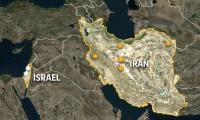Post-pandemic world
Most people in our part of the world must have heard the Sheikh Chilli story. For those who may have not: once Sheikh Chilli was on a tree chopping the very branch on which he was sitting. A passerby told him that if he continued with cutting the branch he would fall down.
Sheikh Chilli disregarded the warning, taunting the man for claiming to see the future and kept cutting. Soon, as was reasonably predicted, the Sheikh fell on the ground along with the branch. Sheikh Chilli was now convinced that the man must be a clairvoyant or a saint. He searched and found the man and insisted that he should tell him when Sheikh Chilli was going to die. The story thereafter is long and fascinating and often told better than the way I did here. My point is: there are always signs; people just wish to ignore them.
In our case, instead of insisting that people like Bill Gates, who warned us of a global pandemic, are saints who could see the future, many of us took their warnings as indications that these individuals must have had prior knowledge of the global crisis. Some even suggested that they might have orchestrated it. Amusingly, according to this idea, while these alleged globalists had the knowledge and the resources to bring about a global pandemic, they could not keep their mouths shut and keep their alleged plan to themselves.
Like I said, the warning signs were always there. Bill Gates was not even one of the earliest people who appeared to have predicted the pandemic. Canadian scientist Vaclav Smil wrote in 2008 that a flu pandemic was almost a certainty. A 2007 study by the American Society for Microbiology that went by the title ‘Severe Acute Respiratory Syndrome Coronavirus as an Agent of Emerging and Re-emerging Infection’ stated that the practice of eating exotic animals in southern China had created a large reservoir of covid-like viruses. Even much earlier than that, international politics scholar Robert Kaplan suggested in the 1990s that globalization would result in diseases and viruses reaching from one part of the planet to another much more rapidly.
How could the people mentioned here, and many others, see what the rest of us could not? The answer is simple: they were paying attention. There was one pandemic after another – AIDS, SARS, MERS, H1N1, Ebola and Zika all happened in the past few decades. For us to witness a more potent and easily contractible virus, it was only a question of when, not if.
Great events and crises, and our responses to them, reshape how human societies live and exist together. We can allow the pandemic to shape our collective future in varying ways. There are those who believe that the response should be in the form of withdrawing from what they blame as the source of the crisis – globalization. Bordering on racism, this response was most notably promoted by former US president Trump when he repeatedly termed Covid-19 “the China Virus”.
Retreat from globalization – sometimes called ‘deglobalization’ – might sound like a natural, even a fair, response. After all, the tools of globalization provided the vehicle for the spread of the virus to almost all corners of the planet in a short amount of time. However, this is a reaction shaped by fear. The fact remains that advancement of globalization and the processes that drive it, barring the occasional hiccup, are inevitable. The lesson we need to learn from the pandemic is how we manage and overcome the pitfalls that come with greater connectivity across international borders.
The pandemic is not the first crisis that resulted from greater connectivity. For instance, in the late 1960s and early 1970s, plane hijackings became so rampant it was often called an epidemic. Between 1968 and 1972, an estimated 326 attempted plane hijackings took place around the world (one attempted hijacking almost every 5.6 days). The reflex reaction could obviously be to refrain from flying – and some did.
But again, that would have been a response shaped by fear. Instead, regulations were introduced by the International Civil Aviation Organization (ICAO). And there are many more people flying planes across the globe now then was even imaginable in the 1960s. The incidents of hijackings, especially after further regulations were introduced in the aftermath of September 11 attacks, have become a rarity.
Our responses that will shape the post-pandemic world should be defined by two factors: one, our reliance on science and evidence rather than fear; and two, to trust that collective, multilateral responses have found answers to such challenges before and we will collectively find responses to the current crisis.
The writer is an assistant professor of political science at the University of Peshawar.
Email: aameraza@uop.edu.pk
-
 AI Safety Battle: Anthropic Fires Back At Pentagon After US Military Flags It ‘supply Chain Risk’
AI Safety Battle: Anthropic Fires Back At Pentagon After US Military Flags It ‘supply Chain Risk’ -
 OKC Vs Nuggets: NBA MVP Shai Gilgeous-Alexander Scores 36 In Fiery Overtime Win
OKC Vs Nuggets: NBA MVP Shai Gilgeous-Alexander Scores 36 In Fiery Overtime Win -
 Eric Dane's Biggest Regret Comes To Light Following Days Of His Death
Eric Dane's Biggest Regret Comes To Light Following Days Of His Death -
 Israel Launches Attack On Iran's Capital And Declares State Of Emergency
Israel Launches Attack On Iran's Capital And Declares State Of Emergency -
 At Least 15 Dead After Military Plane Carrying New Banknotes Plunges Out Of Control In Bolivia
At Least 15 Dead After Military Plane Carrying New Banknotes Plunges Out Of Control In Bolivia -
 OpenAI Partners With Pentagon After Trump Bans Anthropic AI
OpenAI Partners With Pentagon After Trump Bans Anthropic AI -
 Trump Orders Federal Agencies To Stop Using Anthropic AI Tools
Trump Orders Federal Agencies To Stop Using Anthropic AI Tools -
 Shocking Details Emerge In Martin Short’s Daughter Katherine's Death Investigation: 'Kept To Herself'
Shocking Details Emerge In Martin Short’s Daughter Katherine's Death Investigation: 'Kept To Herself' -
 Daniel Serafini Gets Life Without Parole In In-laws Murder And Attempted Murder Case
Daniel Serafini Gets Life Without Parole In In-laws Murder And Attempted Murder Case -
 Yerin Ha On Stepping Into The Spotlight In Bridgerton Season Four
Yerin Ha On Stepping Into The Spotlight In Bridgerton Season Four -
 Nakiska Ski Area Avalanche Leaves Youth Unresponsive, Second Skier Escapes Unhurt
Nakiska Ski Area Avalanche Leaves Youth Unresponsive, Second Skier Escapes Unhurt -
 Igor Komarov Missing In Bali: Seven Foreign Suspects Arrested In Kidnapping Probe
Igor Komarov Missing In Bali: Seven Foreign Suspects Arrested In Kidnapping Probe -
 'I Swear' Director Kirk Jones Says Bafta Broadcast Mishap Failed Tourette’s Advocate
'I Swear' Director Kirk Jones Says Bafta Broadcast Mishap Failed Tourette’s Advocate -
 Yogurt Shop Murders Solved: 1991 Austin Cold Case Finally Linked To Serial Killer
Yogurt Shop Murders Solved: 1991 Austin Cold Case Finally Linked To Serial Killer -
 Iran Tensions Rise As Trump Says He Is 'not Thrilled' With Nuclear Negotiations
Iran Tensions Rise As Trump Says He Is 'not Thrilled' With Nuclear Negotiations -
 Where Is Calvin Klein's Wife Kelly Klein Now After Divorce And Fashion Fame?
Where Is Calvin Klein's Wife Kelly Klein Now After Divorce And Fashion Fame?



